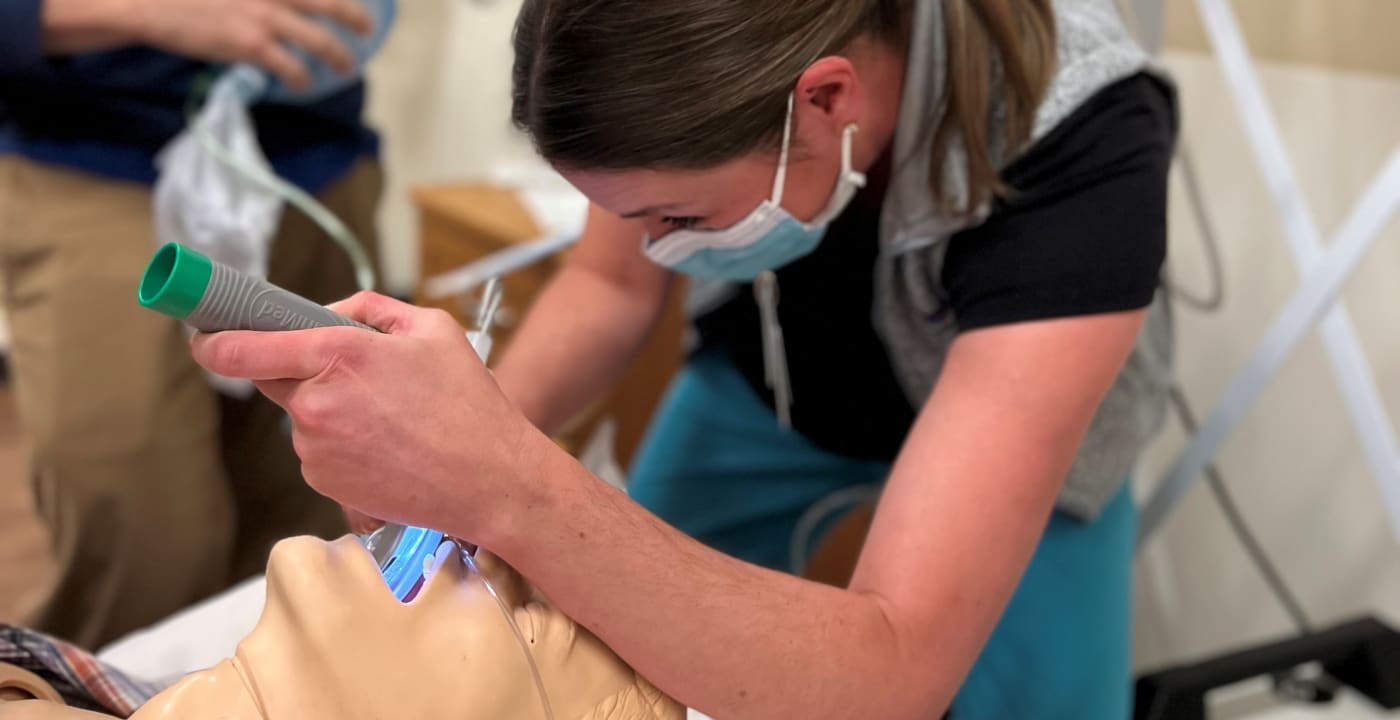Emergency staff are prepared for every challenge with donor-funded simulation education program

Visit any hospital emergency department across the state, and you’ll likely see a couple things — a consistent stream of patients presenting with unique challenges and a hard-working interdisciplinary care team prepared to save lives.
In 2021, more than 76,000 people visited MultiCare Tacoma General and Allenmore hospitals’ emergency departments with different needs and ailments requiring a variety of skills to treat.
To ensure every one of these patients receives the care they need quickly and efficiently, MultiCare Health System offers advanced simulation education to prepare health care teams for the unexpected and time-sensitive tasks they’ll have to perform. This model of clinical training provides realistic experiences for health care workers to learn and practice their skills in a realistic, safe and controlled setting — one that eliminates the risk to human life.
In 2021, 116 households across the South Sound gathered virtually for MultiCare Health Foundation’s 12th annual Rock the Foundation event, raising more than $282,000 to advance MultiCare’s simulation education programs. These funds continue to support the expansion of these programs (called Sim Labs) at Tacoma General and MultiCare University in Puyallup through the purchase of enhanced technology and innovative training equipment.
Preparing emergency department staff at MultiCare University
At MultiCare University, interdisciplinary teams have access to two donor-supported simulation labs that mimic the hospital environment. They’re equipped with medications and technology that staff would typically encounter in the emergency department. Both labs can be fully recorded and feature a control center behind one-way glass where instructors can observe participants and control what happens to the “patient” — a full-body manikin that mimics human cardiovascular, respiratory and neurological systems.
According to president and CEO of Tacoma Emergency Care Physicians, Benjamin Constance, MD, the simulation lab creates a judgment-free environment for staff to practice an exact scenario and learn from their mistakes, much like a pilot prepares for their first flight using a simulator before taking off with passengers on board.
“There’s a big gap between intellectualizing patient care and practicing patient care,” Dr. Constance explains. “What we find, especially in this post-COVID environment where we have a lot of people with less clinical exposure than they normally would have, is that there’s a big difference between understanding what should be done and going through the muscle memory and the motions of doing it.
“There’s also the human dynamic that’s almost impossible to get in a traditional academic setting — how teams communicate with each other, identifying stress behaviors, learning how to have effective and supportive closed loop communications patterns,” he continues.
The space also includes several breakout rooms where teams can debrief after a simulation, watching video recordings of the event. By using experiential learning, simulation focuses on developing effective communication, collaboration and crisis management skills in a “fail-safe” environment, allowing people to learn from their mistakes. For emergency department staff, this is critical, as they’ll encounter fast-paced, sensitive and lifesaving circumstances daily.
“The simulation lab creates a judgment-free environment for staff to practice an exact scenario and learn from their mistakes.”
“There are a lot of cases in medicine where you need practice to become really competent and proficient, and that could range from interviewing a patient about a sensitive subject or engaging in a conversation of conflict with a co-worker, all the way to performing a very complicated robotic surgery,” Dr. Constance says. “Simulation has been found to be useful and effective in that whole spectrum, from social dynamics and working and leading teams to highly technical, tactile skills.”
Thanks to donor generosity, MultiCare is continuing to expand its simulation program to all major MultiCare campuses, ensuring teams like Dr. Constance’s are prepared for every challenge. This plan wouldn’t be possible without generous support from the Dart Foundation, the G. Corydon Wagner Endowment Fund, the Tacoma General Hospital School of Nursing Education Endowment Fund and MultiCare Health Foundation donors.
“This is an investment in our teams — it’s a recognition of the infrastructure we need; it’s an investment in a culture; it’s an investment in a philosophy; and it’s an investment in a program that can very easily outlive any of us,” Dr. Constance says. “In terms of the ripple effect of the donor dollar, this is going to have a very vast and wide impact on patient lives.”
Help advance care team education
You can help ensure staff have access to continuing training and education that prepares them for any challenge with a gift to MultiCare Health Foundation.



